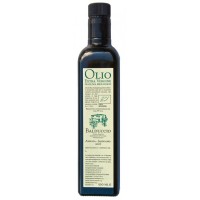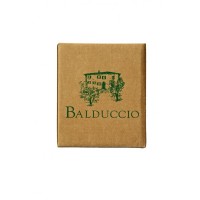 Balduccio, Tuscany (Italy)
Balduccio, Tuscany (Italy)
Overview
The olive farm & winery Balduccio is located in Lamporecchio, on the Tuscan Montalbano hill between Lucca and Florence, near the town of Vinci (indeed, the town where Leonardo da Vinci came from).
Balduccio is a certified organic farm, and processes the olives in its own high-tech oil mill, developed according to the latest quality standards.
From about 15 hectares of olive plantations, with 5,000 trees spread over six olive groves in the municipality of Lamporecchio, the team led by Andreas März creates some of the finest olive oils in the region.
The olive varieties processed are: 70% Moraiolo, 20% Frantoio, 10% other local varieties (Leccino, Pendolino, etc.)
The total production is currently only around 10,000 liters of olive oil per year.

Olive orchards of Balduccio, Montalbano hill
Andreas März
Andreas März is a Swiss-born agronomist/olive farmer, writer, and editor of the Swiss/Italian wine magazine MERUM. WPS owns a lot of “wine intelligence” to Andreas and his writings. MERUM conducts regular independent wine ratings, with a focus on originality, terroir, clean and drinkable wine styles, and on classic styles as well as “forgotten” (or largely unknown) old grapes. You can find this philosophy or MERUM reflected in the selection of our wineries and products, as many of the wineries we represent have been historically received very good ratings in MERUM (examples: Luca Ferraris, Tezza, Sordo, Rizzi).
Andreas began his own investigation into olive oil adulteration in 2004. He was subsequently sued big oil cooperations such as Caparelli, and you can read more on the interesting topic of fake “extra virgin”, “cold pressed” etc. olive oil on these websites:
https://www.newyorker.com/books/page-turner/olive-oils-dark-side
https://www.oliveoiltimes.com/olive-oil-basics/extra-virginity-tom-mueller/21780
If you happen to be able to read German, we highly recommend the subscription of the MERUM magazine:

Andreas & Hannes at Balduccio (2009)
Olive Harvest
Olive harvest begins at the end of October and is usually completed in late November to early December. The olives are not fully ripe at this time, and the oil yield is low; on average between 12 to 13 liters of oil per hundred kilos of olives, this means we need about 8 kg of olives to produce 1 liter of oil!
It goes without saying that only semi-ripe, clean, healthy olives are used, and olives already lying on the ground are left behind. Most larger oil producers, especially in Spain, Greece, and South Italy, do collect olives from the ground, which will yield low-quality oil.
Balduccio never buys oil, even in bad harvest years, but only fills self-pressed oil into his bottles. This means that we do have vintages with a supply that cannot meet demand.
In return, the plump, green-red and green-black olives produce an oil of pronounced fruity character and a high polyphenol content.
Olive Oil Production
The excellent quality of Extra Vergine by Balduccio is no coincidence. The conversion of the natural qualities of the olive into a pure, fruity and varietal olive oil is only possible because Balduccio has been working for years to improve the quality of olive oil and consistently translate the findings into practice. Today, this oil mill is the most advanced the Motalbano region.
In the Balduccio oil mill, the olives are processed within a few hours after harvest. The oil mill is designed according to the most modern technological quality principles:
1) Blower for the removal of the leaves
2) Washing of the olives (fresh water shower)
3) “Air swords” for drying
4) Knife mill to mince to olives to pulp
5) Heat-cold generator, heat exchanger for the olive pulp
6) Vertical, continuous kneaders (for the avoidance of oxidation)
7) Two-phase decanter (without water supply), precisely adjustable temperature in the kneaders
8) Filtering: since enzymatic and microbial quality changes of the oil must be avoided, the Balduccio olive oil is filtered immediately after pressing and stored in stainless steel containers under argon until bottling!
The careful processing of olives and olive porridge means that the polyphenols are protected during processing. These antioxidants, which are important for human health and the shelf life of the oil, are very susceptible to oxidation. Therefore, the olive porridge is processed in hermetically sealed agitators at cool temperatures at exactly 21°C.
Filtering the oil is expensive (adding 1-2 $ per liter), but even small fruit particles in cloudy, “unfiltered oils” will lead to a decline of the oil quality only within weeks after pressing. Olive oil lovers with a fine nose are therefore advised against the purchase of unfiltered oils - except for immediate consumption fresh after pressing!
Ex Tax: SGD35.00
Ex Tax: SGD120.00


